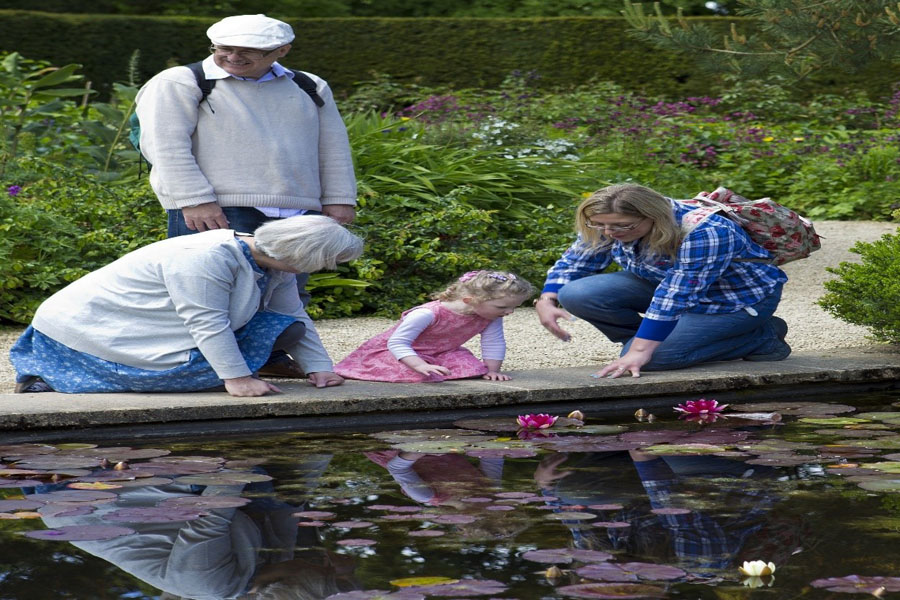Grief and loss are not easy for anyone to navigate, even with good support. We now know that grief affects an elder’s medical health, starting with compromising their immune system.
We also know that grief and loss affect an elder’s mental health, wherein undiagnosed grief can lead to depression. Elders are often resistant to talking with anyone, especially a therapist or their primary care physician. How can we help these elders through their pain?
Anticipate It
The loss is easier to cope with if it is expected. If you discover that someone close to your elder is terminally sick, keep him or her updated on the individual’s care and prognosis, as well as time left. Do whatever you can to keep the elder in communication with the dying loved one. Arrange a visit as soon as possible if your elder can make the trip safely with a caregiver. Plan all details of an elder’s trip to reduce the risk of everything from illness while traveling to overwhelm while grieving.
Capture It
Take pictures of your elder and the patient. Make sure the elder is in contact with the patient’s family members so he or she can share any thoughts, wishes, or sentiments.
Connect Them
When the time comes, make sure your elder attends everything from the memorial to the funeral (as desired) with a caregiver or family member. Negotiate all terrain and call ahead if needed to determine the safest way to get to event sites, and ensure the caregiver takes any necessary medications along. If you feel an elder would respond positively to it, offer to, say, purchase a new tie or lend your hair styling help so he or she feels “at their best.” They will usually see old friends at these gatherings, so help by collecting phone numbers so the elder can re-connect with others later on, as desired, and share the loss of their friend together.
Honor Their Youth
Another form of grief elders experience is grief for their young age, adulthood, all the things they used to be able to do, their memory—you name it. Give your elder an outlet to tell the old stories and be around young people who make them feel vibrant.
Talk About It
Always tell elders and their kids to talk to each other sooner than later about their end of life wishes and make sure they are written down in the form of advance directives and Physicians Orders for Life Sustaining Treatment (POLSTs). This quells anxiety in elders who are watching their friends and family die, and wondering what will happen when it is their time.
Manage Stress
Keep elders away from challenging people to prevent unnecessary stress, whether they be family members who are more concerned about their wishes than the elders or neighbors with poor boundaries. Managing stress is the name of the game when it comes to mitigating grief and loss. Hospice organizations, covered by Medicare, have counselors who can talk with elders, family members, and friends of the dying to support them through this process.
Offer to Talk
Always offer to talk with elders about the grief and loss they are currently facing. If they ask you if they seem sad, be honest with them. “You seem sadder the last few weeks. I know your friend is sick and you are worried about her. Would you like to talk about it? Is there anything else troubling you?”
Start the Conversation
Start a difficult conversation when you know grief and loss are stressing the elder and they cannot find the words to talk about it themselves. Try something like, “What keeps you up at night?” Many times grief and loss share the same symptoms as anxiety and depression. Talk therapy, medications, or behavioral approaches may be appropriate, and a geriatric care manager can coordinate this for an elder.
Be Receptive
It’s important to normalize grief and loss and coach family members on what to say when an elder talks with them about it, so he or she does not shut down. We want elders to keep talking about what they need help with. To do so, we need to respond in a receptive way that says: We can talk about whatever you want. I’m not going to interrupt you, cut you off, give you attitude or judge you. When you tell me something, I am going to say things like: “That must be very hard. You seem to be doing a good job of handling the stress of all of it. Is there something I can do to help?” Offer ways to help if they are stumped.
Be There
The best thing we can do to coach elders through grief and loss is to be there for them and offer to help them. Whether it is obtaining a referral from their primary care provider for grief counseling paid by insurance or a referral to a grief group, a little goes a long way.
Offer to help an elder do something special to pay tribute and say goodbye to their loved one. Take them out to dinner at their favorite restaurant where they can reminisce about the times they used to have there. Once they are in a better place with the death, talk with them about their own end of life planning. Sometimes this is the only time they will talk about it.
There is a strong belief within the grief support community that it is key to keep the door open to an elder’s loved one that has passed. The idea is to accept the passing rather than to close the door, which keeps the loved ones’ memory alive. An elder wants to know that someone will keep their memory alive by paying tribute to them as well. It’s simple, really. All we have to do is pay tribute to one another, starting with our elders who will leave us soonest.
By Tara Bradley
Source: https://www.verywellhealth.com/how-to-coach-elders-through-grief-and-loss-4109371

